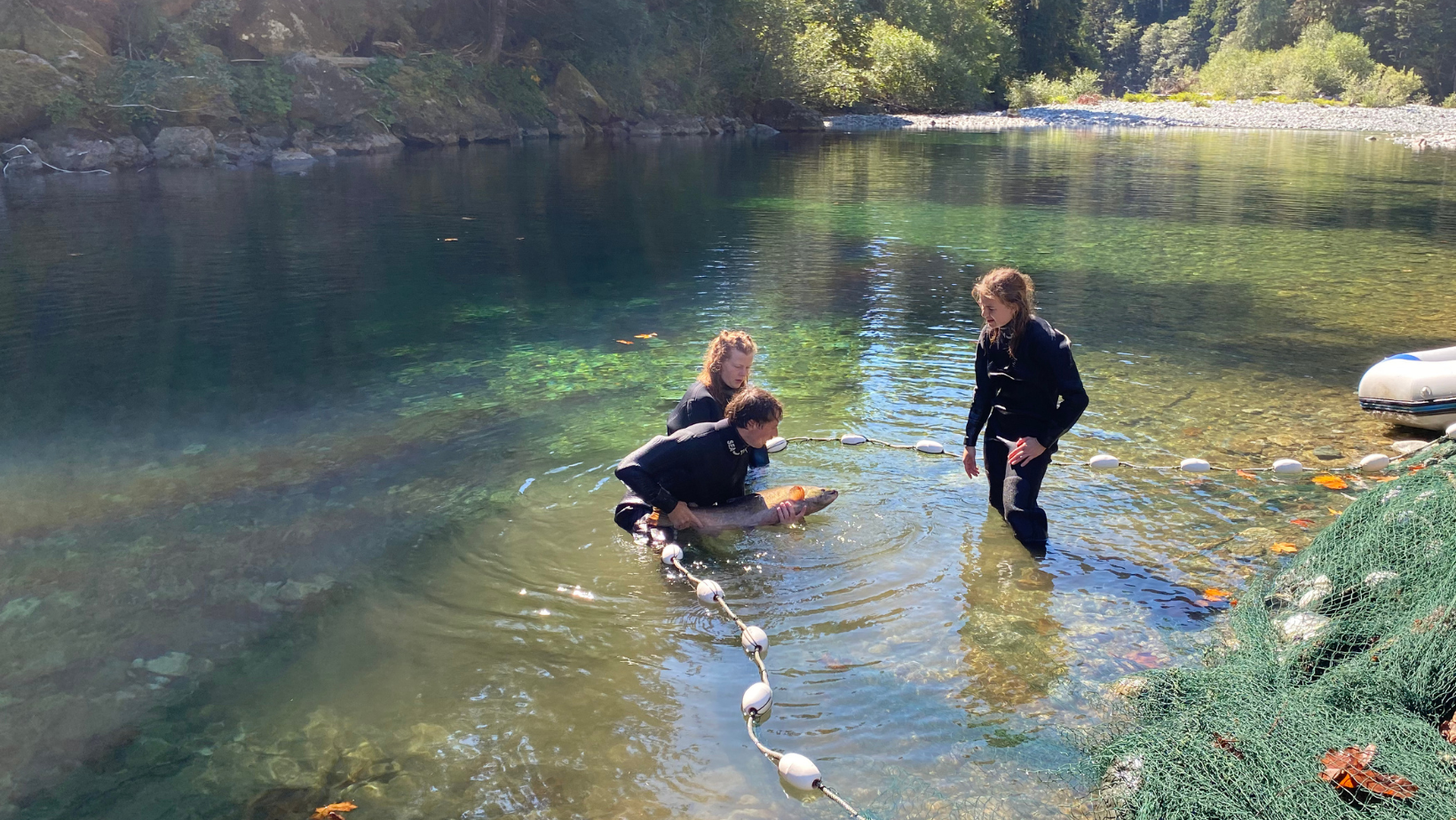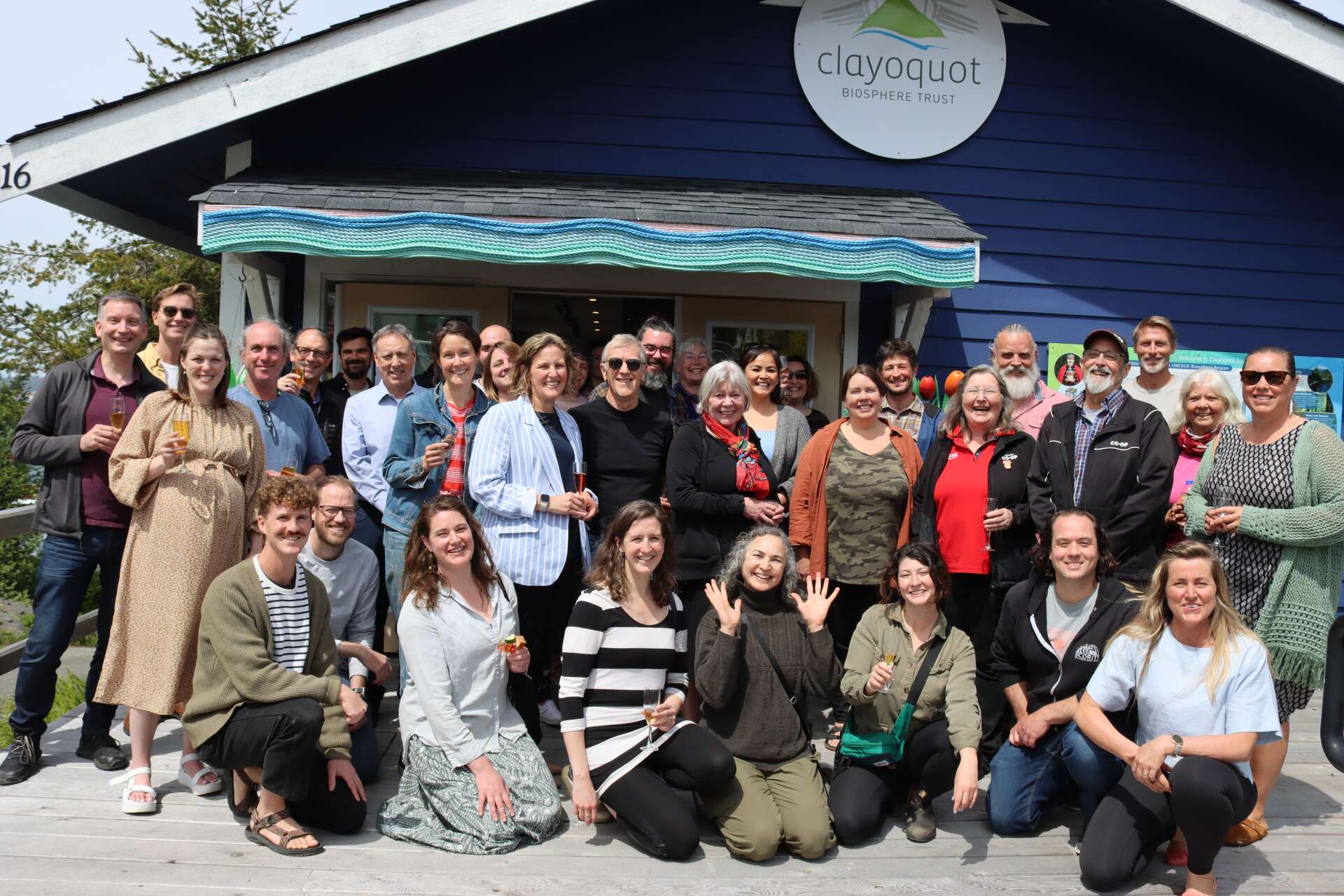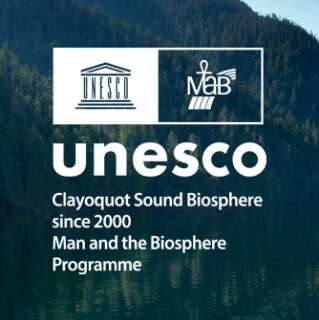Announcing the 2025 Biosphere Research Awards
 Credits: Ha’oom Fisheries Society
Credits: Ha’oom Fisheries Society
We’re excited to announce the recipients of the 2025 Biosphere Research Awards! This year, the CBT has granted $38K to support three amazing projects. This funding stream supports initiatives that address key species or ecosystem threats, focus on reversing degradation trends, and promote conservation actions with broad application. Each program aligns with First Nations priorities and protocols, upholds the spirit of the UNESCO Biosphere designation, and shares research findings publicly.
We deeply appreciate the efforts of the Research and Environment Advisory Committee, a group of dedicated local volunteers who carefully reviewed every application. Special thanks to the Tofino Resort & Marina for partially funding the Ha’oom Fisheries Society, making their vital project possible.
To learn more about the projects below or to connect with the project leaders, email colin@clayoquotbiosphere.org.
2025 Biosphere Research Award Projects
A feast bowl, Ha'uukmin: Abundant futures for the ha'wii'h of ƛaʔuukʷiʔatḥ haḥuułi | Ha’oom Fisheries Society
Haʔukmin (The Great Feast Bowl), also referred to as the Kennedy Watershed, is part of Clayoquot Sound. Kennedy Lake is the largest lake on Vancouver Island and supports dwindling numbers of miʕaat (sockeye), cuw̓it (coho), and hink̓uuʔas (chum), and suuḥaa (chinook) have severely declined. Unsustainable industrial harvests have depleted salmonid populations, logging and highway development have disrupted terrestrial habitat, and climate-induced changes have altered the hydrologic cycles in the haʔukmin.
Within living memory of ƛaʔuukʷiʔatḥ (Tla-o-qui-aht), the Haʔukmin has changed from an abundant ancestral garden to a place of scarcity. Canadian rebuilding plans for salmonids in haʔukmin have largely been paper exercises that document decline, focus on abundance, and set the population status requirement for action at the critical level. Revitalizing Haʔukmin requires a new approach to the development of a rebuilding plan for depleted populations of salmonids. Through collaboration, community interviews, and mentorship, Ha’oom will develop a plan led by ƛaʔuukʷiʔatḥ values and traditions, working to return haʔukmin to the Great Feast Bowl.
Grey Whale Drone Photogrammetry Project | Marine Education and Research Society (MERS)
We know who the grey whales are that visit the West Coast of Vancouver Island, but the question is: “How are they doing?”. The Pacific Coast Feeding Group (PCFG) grey whales are the individuals that feed off the West Coast of Vancouver Island during the foraging season. By flying a drone above the whales to capture aerial imagery, the Marine Education and Research Society (MERS) is then able to take measurements of the whales. These measurements are processed and used to calculate a Body Area Index, a metric that can be used to determine the condition of the whale.
Over an initial 3-year period, MERS will assess the condition of multiple PCFG grey whales at different times of year. This will help build a clearer picture of their seasonal shift in condition, start to unpick the year-to-year variations, aid them in understanding growth rates, detect pregnancies, and develop a clearer picture of the foraging techniques used in specific foraging habitats. By focusing on the health and habits of individuals, MERS will be able to start to answer the question, "How are the PCFG grey whales doing?".
ƛaʔuukʷiʔatḥ Nation Kelp Restoration | Redd Fish Restoration Society
Thriving in the cold and nutrient-rich waters of Clayoquot Sound are a diverse suite of kelp species, creating lush underwater forests that provide the threads for a rich tapestry of life.
Redd Fish Restoration Society is collaborating with the ƛaʔuukʷiʔatḥ First Nation and West Coast Kelp to restore kelp forest habitats and increase biodiversity throughout the ƛaʔuukʷiʔatḥ hahuułi. For this project, they will be trialing two novel kelp restoration techniques and an innovative biodiversity monitoring protocol.

